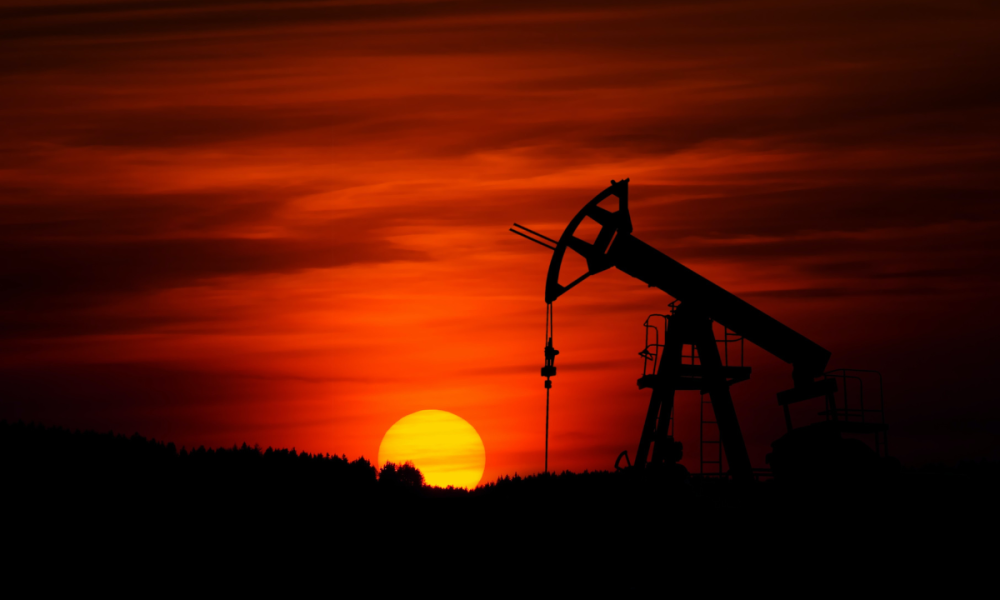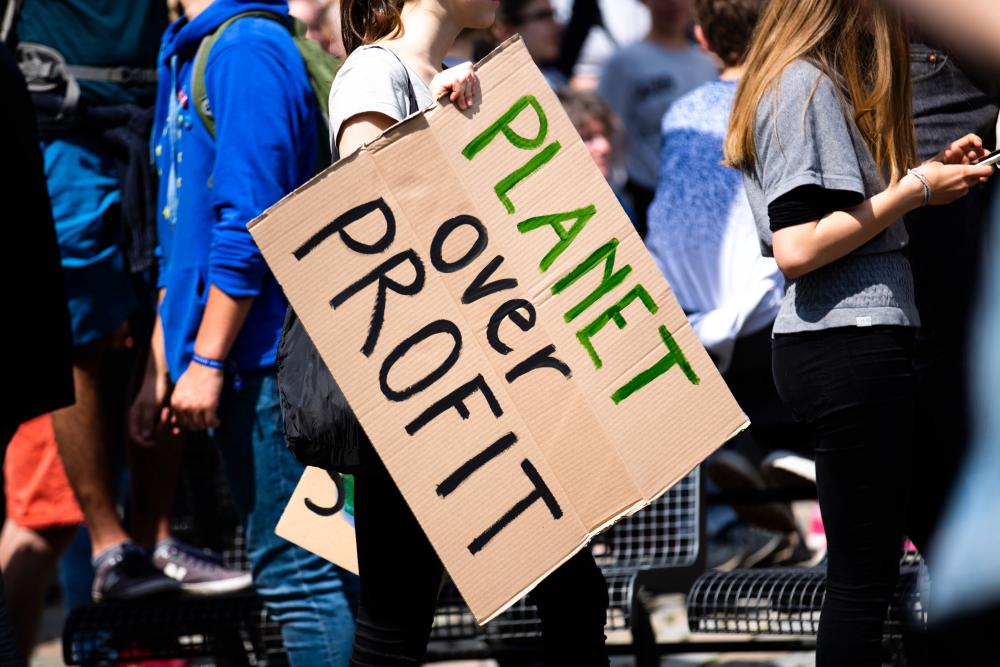The Gas Industrial Complex: Vast profits, imperial roots and ecological destruction


Spaces of power, be it the Berlaymont or Europa building, are more often than not inaccessible to the public. As important decision-making occurs within cloistered walls, the depth of existing partnerships between fossil fuel executives and European political decision-makers is shrouded. Yet, corporate and political agents’ overlapping financially driven interests, position racially exploitative and ecologically disastrous technologies and policy frameworks as essential for European energy security to the maintenance and expansion of the global fossil gas industry.
These complex networks, more accurately described as the muscular force behind the ‘Gas Industrial Complex’ (GIC), have not yet been the focal point of comprehensive research. We posit the GIC as a theoretical framework encapsulating a rapidly expanding web of fossil gas infrastructure, investments, and interests – ideological, geographical and monetary. To dissect the GIC and effectively organise against its violences, it is essential to magnify its colonial histories, clandestine practices, as well its devastating (un)intended consequences.
Why the ‘Gas Industrial Complex’?
The coinage of the term GIC, a homage to the Prison Industrial Complex (PIC), aptly captures the various organs working in conjunction to uphold and expand the fossil gas industry. The expression ‘industrial complex’ elucidates the multiple corporate and governmental interwoven interests and, necessarily, the economic, political, and ideologies on which the industry relies. Indeed, both the GIC and the PIC “simultaneously produce vast profits and social destruction”. The historic institutional safeguarding of the energy sector as well as the mass proliferation of fossil gas infrastructure are not passive profit-seeking ventures with inadvertent harmful consequences. It must be stressed that the GIC is an analytical lens that connects energy companies’ continued financial success to their reliance on racialised exploitation and environmental violence, where this violence is both the means and the end. In other words, fossil gas corporations’ exponential profits originate directly from environmental degradation and racialised exploitation; the GIC cannot subsist without these practices.
The GIC, as a strictly decolonial and abolitionist framework, calls for uplifting the disproportionate ruination of Global Majority bodies, communities, livelihoods, and environments, both built and natural. Through its critique, it synchronously calls for the abolition of a constitutionally racist energy system and the creation of an absolutely equitable one. Much like private-public partnerships aggregating prisons to enact calculated violence on racialized bodies across the PIC, the GIC relies on transnational labour lines in which class and race play key roles. As independence from European powers did not come alongside epistemological shifts abolishing Western powers’ constructions of race and gender, colonial paradigms were transplanted onto post-political colony North-South relationships. Poorly enforced labour laws, especially for contractual workers, in the fossil gas industry today harks back to these colonial histories, which inculcated brutal labour outsourcing into ‘mainstream’ production methods. The concepts of ecolonisation, ecoaccumulation, and accumulation by dispossession are useful in understanding the varied ways in which the tools of 19th-century Imperial subjugation continue to be utilised by the energy sector today.
A clear example of the imperial interests shapeshifting into the ‘post-colonial’ era is the 1990s ‘Dash for Gas’, currently undergoing it's second coming in the 21st century, as gas is touted as the “cleaner” alternative to coal and oil. The corporate sprint to acquire gas fields in North Africa and maximise profits from imports starkly echoes the 19th-century Scramble for Africa. In the aforementioned land and resource grabs, it is the material gains of the potential proprietor (monarchs or settlers; shareholders or CEOs) that are evaluated in absence of considerations to irreparable local community losses. These accumulation exercises are predicated on a conscious demarcating of ‘sacrifice zones’, where capitalist political arithmetics allocate non-bourgeois racialised bodies towards exploitative manual labour, leaving others to be designated as disposable and ‘unliveable’.This is yet another flagship condition of Imperial production modes fundamental to the GIC.
Colonial histories: The pursuit of Algerian fuel
The relationship between the Algerian and French governments and corporate agents serves as a striking example of the colonial anchoring of the GIC. Predictably, Algerian Sonatrach and France share a long, bloodied history.
Sonatrach was founded a year after the conclusion of the Algerian War of Independence, which brought an end to 132 years of French colonisation of Algeria in 1961. The battles for independence were hysterically violent, with gruesome elongations to talks stemming from de Gaulle's intentions of granting independence to the Algerian coastal regions whilst still keeping control of the oil-and-gas-rich Sahara – a heavily contentious and contested demand. Fossil fuels were a principle discussion point during the war. Unsurprisingly, France clutched at the Sahara to safeguard its national energy security and salvage its plummeting international position as an Imperial power. For the newly-independent Algerian nation, its oil and gas promised rebirth and stability after lengthy, vicious battles for self-governance.
French colonial interests remained in the Évian Accords that concluded the talks. In the end, the Algerian Sahara was released from the fate of remaining a French colony, but France was to establish military bases in Algeria and to have privileges to the hydrocarbon-rich Sahara. French claims to minerals in Algerian soil were so fervent that when Sonatrach was founded in 1962, the Algerian state held only 4.5 percent of the exploration perimeters, while French interests were as high as 67.5 per cent. This mere fact brings to light a key facet of GIC operations – the dissonance between political rhetoric and the substance of institutional action. Although Sonatrach was the ‘Algerian energy company’ it is undeniable that French political will shape its raison d'etre post-independence. Over the years, French stakes in Sonatrech gradually decreased, but its ties to Algeria persisted.
Sonatrach remains Algeria's largest and most lucrative source of “patronage, privilege, and power”. Algeria is currently the second largest exporter of gas to France, with Russia taking first place. It is estimated that Algeria is the fifth largest supplier of gas to the EU at around 45 billion cubic metres per year, with Sonatrach being the seventh largest gas company in the world. It is also the largest company in Africa, with 154 subsidiaries. Although Sonatrach is a nationalised company, it often engages in partnerships with private companies. For instance, it shares ownership of the Medgaz gas pipeline, running between Algeria and Spain, with Naturgy, a privately owned multinational energy company. Simply put, Sonatrach is an energy giant and often named as such – reflecting its status as a key GIC player; a significant EU trading partner and a mediator between prior Imperial powers and affected communities on their own soil.
Although Sonatrech is a government-owned corporation, it is decidedly not a vehicle for advancing public wellbeing: Algerian regimes have depended almost exclusively on oil and gas production rents to remain in power, “along with corruption, coercion, and cooptation”. Given the financial powerhouse that is Sonatrach, and its vital role in upholding the Algerian comprador class, the challenges for the democratisation and decentralisation of the company (and thus possibilities for community stakeholders to have a say in its operations) seem daunting and remote.
The GIC: Pernicious practices, deadly results
1 in 5 deaths globally are attributed to fossil fuel air pollution, much higher than previously thought. This year, disastrous floods in Nigeria and Pakistan haunted the international community: the latter so much so that members of the European Parliament “underscored the need” to “scale up assistance” to the region. The ironic gesture of Global North institutions debating the aid hand-outs after cultivating the world’s most pollutant societies, too, amounts to the dismissal of accountability. Yet, many organisations on the ground are fighting the sophisticated instruments of the fossil sector. Don’t Gas Africa, Power Shift Africa, and the Gastivists, for example, have positioned themselves as active resistance to the ever-expanding GIC. In the case of Algeria, fossil capitalism, its asymmetric developments and socio-ecological devastation have long sparked numerous uprisings, such as the anti-fracking, anti-imperialist protest in Salah in 2015. An activist from In Salah present in the 2015 protests expressed that ‘decision-makers [...] think [those in In Salah] don’t have the capacity to understand what’s going’ but that their ‘citizen movement' proved them wrong. It must be noted that European fossil fuel companies’ ‘sanitisation’ efforts, where dire GIC effects are downplayed and erased from the public mind, are more directly seen within the geographical spheres of their retail consumers in Europe; the violent consequences of extraction in North African sites, for example, are attributed as matters to be dealt with by local governments, facilitating European companies’ undue exoneration.
Indeed, for oil and gas corporations, disassociating from the deadly consequences of the GIC has become crucial. Thus, greenwashing and censorship tactics have become part and parcel of existing as a fossil fuel company in the 21st century: it seems the stakes are high, too, for fossil fuel oligarchs and capitulating politicians. The fossil fuel industry’s undue influence over European policy frequently reigns silently strong-handed. An investigation led by the Corporate Europe Observatory revealed that following Russia’s invasion of Ukraine in February up until September 2022, fossil fuel industry actors had more than one-hundred meetings with The European Commission: equivalent to one every other day. The contents of these meetings are lacklusterly recorded at best, unknown at worst. Fossil fuel company executives' exclusive relationship with political leaders facilitates lucrative private-public contractual agreements situating fossil fuels as the answer to socio-economic issues. This often occurs in skewed cost-benefit analyses which limit investments urgently required to limit the effects of climate calamity: namely, stopping resource extraction and installing clean, renewable energy sites equitably.
This month, representatives from the European Commission and European Parliament, among others, congregated at Sofitel Brussels Europe to network and discuss which carbon removals “hold the greatest promise for the EU, and how to ensure they do not distract from direct decarbonisation efforts”. The event, organised by Shell, is strategically timed: just before The European Commission is expected to publish carbon removal regulation frameworks. Shell, the world's largest trader in Liquified Natural Gas (LNG), amassing more than £15bn in profit in 2021 largely as a result of its prodigious Integrated Gas Division, has economic interests clearly incongruent with the decarbonisation efforts apparently central to EU ‘greener’ energy initiatives such as REPowerEU. Even so, Shell and EU Commissioners sit comfortably together, reflective of the corporate vested interests present in Brussels and the lengths fossil fuel companies will go to mask their motivations.
Alongside corporate networking events, language is a key tool in shaping energy narratives. 'Transition’ and ‘synthetic’ descriptors for dirty fossil fuels, too, disguise environmental degradation and distance EU policy-shapers from the horrors of institutionalised environmental racism. The deadly link between burning fossil fuels and climate change has been known for decades, with big oil and gas companies refusing to act and actively funding climate scepticism to continue business as usual. These condemning facts, however, have done little to stop the fossil gas industry, conceivably incentivising the increased implementation of greenwashing language and tactics. Yet it is abundantly clear that the GIC’s expansion will only be met, in parallel, with uprisings and resistance from environmentalist organisations, fighting for their livelihoods, communities, and self-determination and that greenwashing will never go as far to dismantle the agency of affected communities on the ground.
About the author
Paola Lindo is a climate justice activist, legal scholar and part of the collective WeSmellGas.
WeSmellGas are a research and activist collective, co-founded by SOAS alumni. The aim is to challenge EU fossil gas policies based on racialised capital and (neo)colonial exploitation.
The GIC is a decolonial concept that was developed to articulate a network of corrupt vested interests and colonial relations that fuel the creation, maintenance and expansion of the European fossil gas industry. It is the theory that began the whole project and underpins the values, mission and outputs of our collective.




